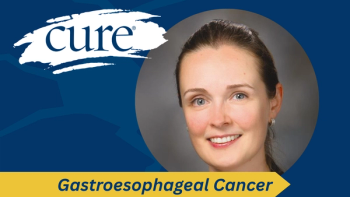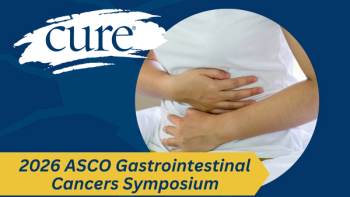
All in the Family: The Importance of Talking About Hereditary Cancer
Knowing that you have an inherited gene mutation can allow you and your family members to look into prevention or detect a cancer at an early stage.
If you knew you held the information that could potentially save someone’s life, would you share it with them? That’s up to you to decide. But when it comes to hereditary cancers, what you choose to share could be the lifeline your loved ones need for the future.
Knowing that you have an inherited gene mutation can allow you and your family members to look into prevention or detect a cancer at an early stage.
The key is communicating that information with not just your daughter or son, but also extended family such as an aunt, uncle, niece, nephew or grandchild, according to Megan Myers, M.S., a genetic counselor from the University of California San Francisco (UCSF).
“This information can be empowering, especially if you can be connected with the right individuals — a genetic counseling team, with providers who know what’s going on and with family members and friends who are advocates,” said Myers during an interview with CURE at the FORCE 10th Annual Conference underway in Orlando, Florida.
Myers discussed genetic testing, reasons why families don’t talk about inherited risk and one of the biggest misconceptions about hereditary cancer.
What are some of the highlights of your presentation, Communicating Cancer Risk with Extended Family Members?
I’ll be talking about family communication and its importance with respect to hereditary cancer, as well as the different tools that we know are available right now for communicating that information. Family communication is near and dear to my heart. I’ve worked primarily with patients who have hereditary colon cancer syndromes.
We have seen a number of different reasons that families weren’t really communicating genetic information. Whether it be they didn’t understand the information themselves, they were embarrassed to talk about it, family dynamics or they didn’t know what to share.
So, part of my job was to create a family communication and educational website called
If you’re communicating your risk to a family member, what are some key points to hit?
For hereditary breast and ovarian cancer syndrome, if you have a sibling you want to let them know that they are at a 50 percent risk for having the same condition as you and that it would be important that they meet with a genetic counselor.
You could meet with your provider, your doctor, your gynecologist or whoever it may be, but a genetic counselor actually gives you the information that you need about what you are testing for, why you are testing for it, what the cancer risks are and what you can do about those risks. Whether it be prevention, screening, risk-reducing surgeries, oral contraceptives or chemo-prevention. It’s important to get all that information before you decide because it can be a life-impacting decision.
There have been studies showing that if you can provide a piece of educational material to your family member, such as a test result, that your family member is much more likely to go and act on it, meet with a genetic counselor, talk to their doctor about it and get the testing that they need.
Would Kintalk help individuals who don’t know their family history, such as people who are adopted?
Part of the reason we developed Kintalk is because some people don’t want their family members to have their email address, they don’t want to connect with them on Facebook or they don’t want to give them that call. Kintalk can be the middle man for that.
You can invite anybody that you would like to come to Kintalk and view the private files that you have uploaded. It’s a great way to send out the invitation, but also still have that piece of separation if you have family dynamics or if you have been adopted and you’re not sure if you want to connect with your adopted siblings.
Can you talk about the difference between BRCA1 and BRCA2?
In some ways they are the same and in some ways they are different. [Estimates vary], but women who have either BRCA1 or BRCA2 mutations have a much higher risk for developing breast cancer compared with the general population. In terms of ovarian cancer risk, the two differ: BRCA1 tends to be a little higher, somewhere up in the 40 percent range, and BRCA2 tends to be in the 20 to 30 percent range. But still that risk is high enough that we would be recommending prophylaxis or risk-reducing surgeries.
People who have BRCA2 mutations also have an increased risk for developing melanomas, pancreatic cancers, colon cancers and uterine cancers. When we see these family histories, for example at UCSF, and we see that it’s a BRCA2-positive family and we see pancreas cancer, we are going to be recommending pancreatic cancer screening for that family.
What about men and hereditary cancer?
One of the biggest misconceptions is that hereditary breast and ovarian cancer only affects women and that it skips men, but that is so incorrect. We inherit these genes, BRCA1 and BRCA2, from our mother and father the same way, male versus female. So, your brother has the same risk that you do for inheriting a mutation. Men who have any kind of hereditary mutation have an increased risk. Men with BRCA1 and BRCA2 have an increased risk for breast cancer, prostate cancer, pancreatic cancer and melanoma — possibly colon. If they go on to have children, they also face those risks.
Can you talk about family planning when there is known hereditary cancer?
If you find out that you have a BRCA1 or BRCA2 mutation before you have children, you have a couple different options depending upon your age and your concern for ovarian cancer. You can always preserve eggs or embryos and choose to remove your ovaries to reduce your risk of ovarian cancer. That comes with quite a large process. You can even screen embryos to see if they carry the mutations. It’s a personal choice.
We don’t recommend genetic testing until the age of 18. Let your children grow up healthy and happy, and then let them make that decision when they are old enough. But keep the open communication to let them know what is going on in the family. These cancers can be preventable or at least detected and treated at early stages, but that comes with communicating that to the family members.
What is the timeline for genetic testing?
Typically, you’ll be referred through your doctor to come and meet with genetics. That might take about a month to get in. One you meet with genetics, it is about an hour to an hour-and-a-half appointment. We want to go through everything like your health history and your family history.
We talk about what it means to have a cancer gene and the things they can do to prevent or detect cancers at early stages. We talk about those options and what genetic testing looks like.
Then, we collect a saliva sample and it generally takes four weeks to get the results back. At that time, I have my patients come back in, we review the results together and then talk about next steps.
When someone tests positive for a hereditary cancer syndrome, the first thing I always tell them is this is not a diagnosis of cancer. This is just letting us know what you are at risk for.



